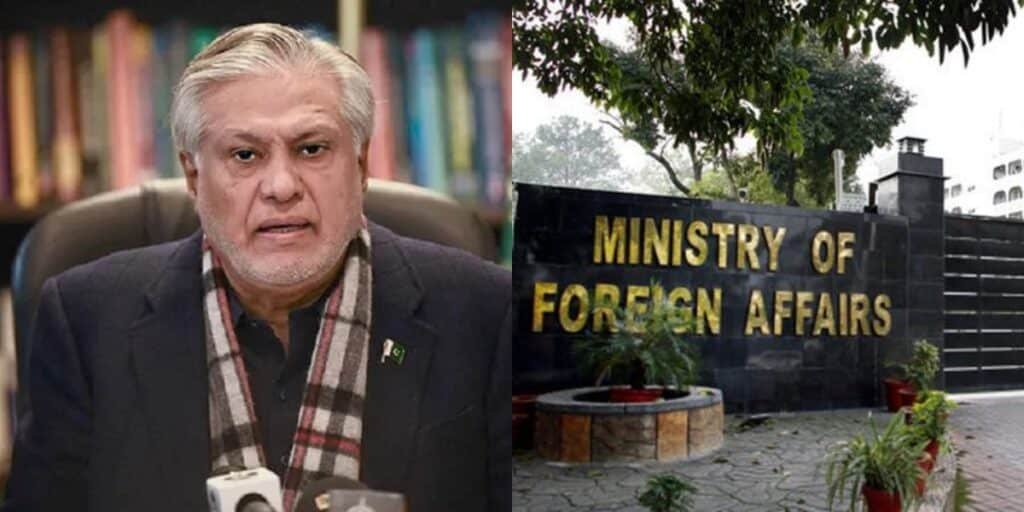WEBDESK: In a proactive step to ensure the safety and security of Pakistani nationals and Zaireen (pilgrims) in Iran, Foreign Minister Ishaq Dar has announced the activation of a 24/7 Crisis Management Unit (CMU) at the Ministry of Foreign Affairs.
According to an official statement shared via social media, the CMU will remain operational round the clock to monitor the situation and provide timely assistance to the Pakistani community in Iran.
Strongly condemn unjustified Israeli attacks on Islamic republic of Iran which is a brazen violation of Iran’s sovereignty. This abhorrent action has shaken foundations of international law as well as conscience of humanity; and gravely undermines regional stability & int’l…
— Ishaq Dar (@MIshaqDar50) June 13, 2025
Additionally, the Pakistan Embassy in Tehran has been instructed to extend full facilitation to Pakistani community members and Zaireen. The embassy has also issued a hotline number for immediate contact and support: +98-2166941388.
The Ministry reaffirmed its commitment to safeguarding the well-being of all Pakistanis abroad, particularly in light of recent regional developments.
Pakistan’s Foreign Minister Ishaq Dar has strongly condemned Israel’s reported attack on Iran, describing it as an unjustified and blatant breach of Iran’s sovereignty. In a statement posted on his official X (formerly Twitter) account, Dar denounced the strike and expressed Pakistan’s solidarity with Iran.
German airline Lufthansa has announced that it is halting all flights to and from Tehran, following widespread Israeli airstrikes on Iran. Meanwhile, Russia’s Aeroflot has also taken similar steps.
Iran has closed its airspace to all flights after Israeli forces carried out a series of deadly airstrikes targeting military and nuclear facilities. The sudden move to seal Iran airspace comes amid fears of further attacks and rising tensions in the Middle East.
Early on Friday, June 13, 2025, Israel launched a series of airstrikes under the banner of “Operation Rising Lion,” aimed at severely damaging Iran’s nuclear program and military infrastructure. The operation targeted key sites, including the Natanz uranium enrichment facility, ballistic missile production centers, and military command hubs.
According to Iranian state media and local eyewitnesses, powerful explosions were reported in multiple locations, notably near the heavily fortified Natanz facility. The strikes caused extensive damage and claimed the lives of several high-ranking Iranian officials. Among those killed were Major General Hossein Salami, commander-in-chief of the Islamic Revolutionary Guard Corps (IRGC), along with two prominent nuclear scientists, Mohammad Mehdi Tehranchi and Fereydoun Abbasi-Davani.
In addition to military targets, Israeli attacks reportedly struck residential neighborhoods in northern, western, and central Tehran. Iranian media and eyewitness testimonies confirmed civilian casualties, including children, fueling widespread grief and outrage throughout the country.





